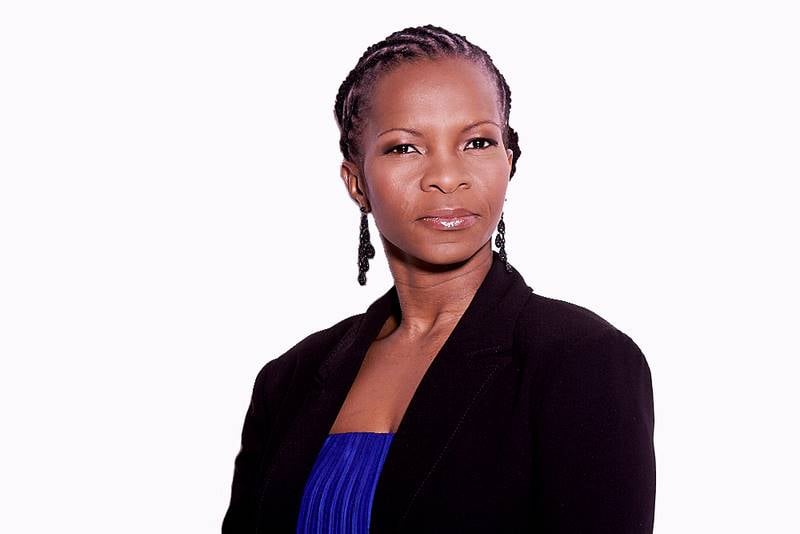
Pheladi Gwangwa Photo: UCT
- The University of Cape Town’s deputy council chairperson, Pheladi Gwangwa, left a special council sitting on Monday night under a dark cloud after questioning the legality of the meeting.
- Gwangwa was expected to face a motion of no confidence in her.
- She told members she had asked her lawyers to write to the council and inform it about the illegality and unconstitutionality of the meeting.
The governance fallout at the University of Cape Town has taken a new turn: deputy council chairperson Pheladi Gwangwa wants to go to court to nullify the appointment of an independent panel to investigate vice-chancellor Mamokgethi Phakeng and council chairperson Babalwa Ngonyama. And she has threatened to resign.
Gwangwa’s lawyers have served UCT with a letter protesting the holding of a special council meeting on Monday, based on its alleged illegality and the decisions taken.
Monday’s special council sitting was on the verge of collapse, with Gwangwa excusing herself from the meeting after differing factions disagreed on the way forward.
The meeting ultimately managed to appoint a heavyweight legal panel under retired Supreme Court of Appeal president Judge Lex Mpati.
During the meeting, the university’s council approved the appointment of the panel to investigate allegations of misconduct and abuse of power against Phakeng and Ngonyama.
New details have emerged from the council sitting, where Gwangwa was expected to face a motion of no confidence.
She set the tone of the meeting when she lambasted council members during her opening remarks.
Gwangwa told members the current environment did not serve the institution’s best interests. “The environment has now become so toxic, polarised, and so strained such that this sitting of the special council meeting has been called in disrespect of the UCT institutional statute as I referred to it earlier.
OPINION | David Benatar: Dirty tricks at play at UCT
“Over a long period of time, and by all accounts since I have been on this council since July 2020, there have been sustained attacks against the vice-chancellor, then the chair and lately myself and I stayed in the council because I wanted to do good and to preserve the dignity of this organisation,” she said.
Gwangwa added the current developments have made her think it was no longer worth her time and effort.
“I will certainly reconsider my seat on this council and will inform this council when that time comes. My lawyers have served UCT with a letter protesting the holding of this special meeting based on its illegality. Therefore, any decisions that will flow out of this meeting will also be illegal,” she said.
Gwangwa added the meeting did nothing besides reinforcing a purging environment that had sprung out at UCT over the past month or so.
She said:
It is my contention that should this meeting continue and make illegal decisions, then I will be left with no choice but to approach the courts urgently to overturn such decisions. I am now going to walk.
Gwangwa said the special council sitting was not properly constituted because the institutional statute provided that any special council meeting must be called on three days’ notice.
“We only received the agenda and the papers from Saturday morning, with the legal opinion, only submitted late on Saturday evening, which gives less than three days’ notice.”
Gwangwa told members she had asked her lawyers to write to the council and inform them about the illegality and unconstitutionality of the meeting, as well as the proposed motion of no confidence.
“The proposed motion of no confidence further suggests that I, as deputy chair of council, have now suddenly become incompetent in my chairing of UCT council meetings, simply because certain council members are unhappy with me and my decisions lately.
“There has further not been any due process to deal with such incompetence or conduct, as is dictated by the council code of conduct, but simply a rush to remove me from the chair and/or council,” she said.
Earlier on Monday, a legal opinion obtained by UCT regarding Gwangwa’s conduct found she was conflicted when she acted as the chairperson of the council in Ngonyama’s absence.
A detailed 49-page legal opinion from advocate Michelle O’Sullivan found Phakeng and Ngonyama should not have participated in the council meeting of 6 October, when it voted on a motion to institute an independent investigation into their alleged transgressions.
READ | UCT crisis: Mpati, Khampepe, Cachalia to head probe into VC Phakeng and council chair
She also found Gwangwa erred in how she chaired the meeting, allowing Ngonyama to participate in a matter involving her own governance decisions. Council members voiced concerns Ngonyama should have recused herself from the vote, but Gwangwa refused to reconsider her ruling.
At another meeting that took place on 15 October, Phakeng and Ngonyama recused themselves prior to the meeting. Gwangwa indicated she would not withdraw, and several council members were of the view she should recuse herself from the agenda item. The debate carried on for four-and-a-half hours.
In her absence, the meeting was chaired by council member Marlene le Roux.
Council accepted terms of reference for the investigation into Phakeng and Ngonyama, and appointed Mpati, retired Constitutional Court Judge Sisi Khampepe, retired Appeals Court Judge Azhar Cachalia, governance expert Trish Hanekom and Wits head of transformation Bernadette Johnson to conduct the probe.
They must report back to council by 31 December.
Source link











